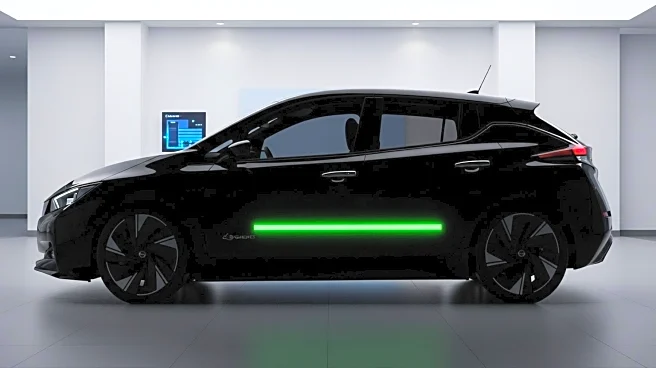What's Happening?
Nissan has announced significant production cuts for its next-generation Leaf electric vehicle due to battery shortages. The company plans to reduce output by more than half between September and November 2025, with the most substantial cuts occurring in September and October. This decision reflects ongoing challenges in securing battery supplies, which are critical for electric vehicle production. The shortages have forced Nissan to adjust its manufacturing plans, impacting its ability to meet consumer demand.
Why It's Important?
Battery shortages are a pressing issue for the automotive industry, affecting production schedules and market availability of electric vehicles. For Nissan, these shortages could lead to lost sales opportunities and affect its competitive position in the growing EV market. The situation underscores the importance of securing reliable supply chains and investing in battery technology to support the transition to electric mobility. U.S. stakeholders, including consumers and industry players, may experience delays in accessing new EV models, impacting market dynamics.
What's Next?
Nissan may seek alternative suppliers or invest in expanding its battery production capabilities to mitigate future shortages. The company could also explore partnerships or collaborations to enhance its supply chain resilience. Industry-wide, there may be increased focus on developing sustainable and scalable battery solutions to support the growing demand for electric vehicles.









